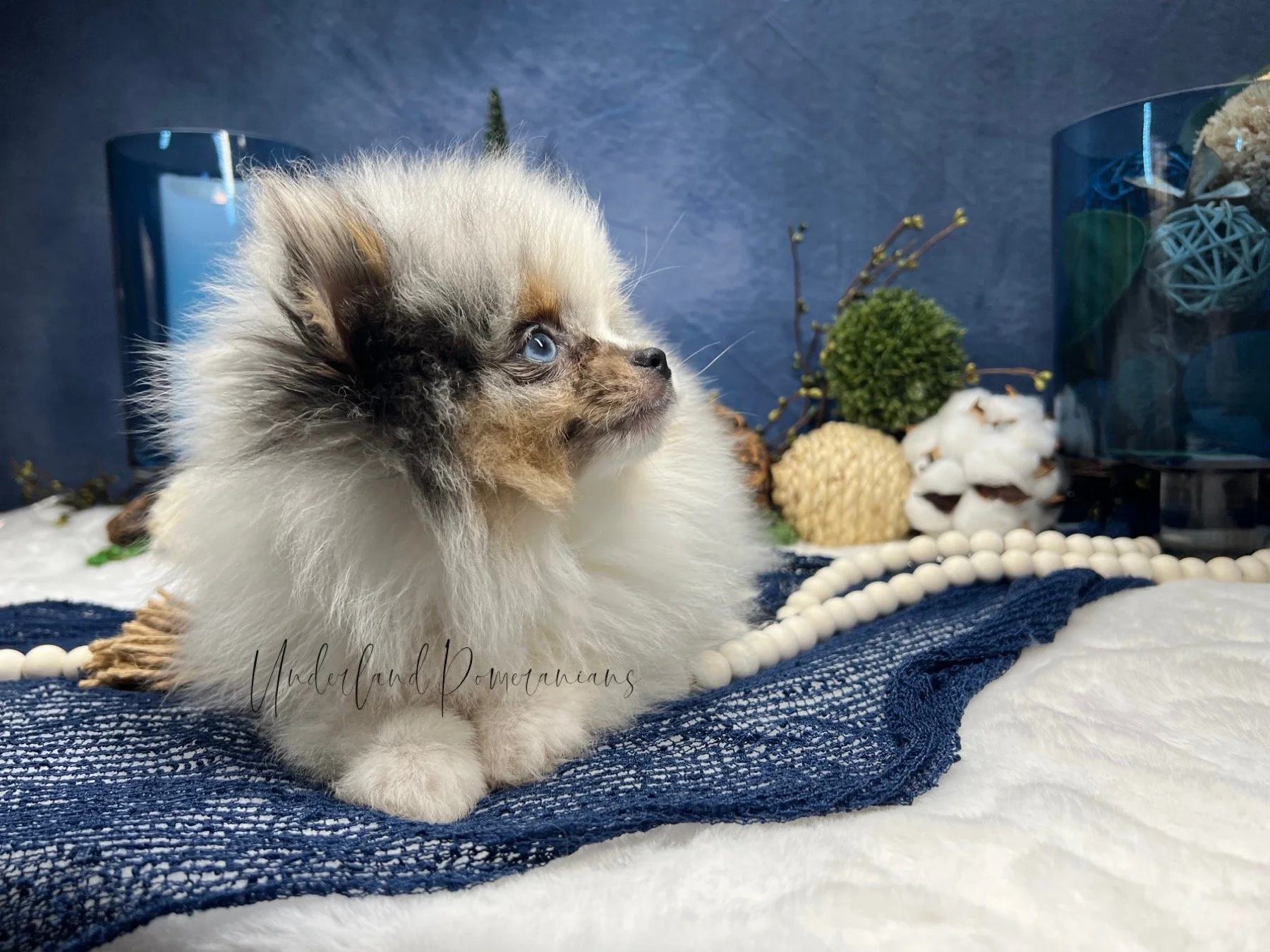
what to know about your new puppy…
Bringing New Pomeranian Puppy Home
When you arrive home with your new Pomeranian Puppy, he or she may be nervous. Being in a new environment, away from his loving Mother and litter mates. During these first few days stress may affect some Pomeranian pups considerably.
For the first few days ensure that baby is eating his food. Too much excitement can cause exhaustion in a young Pomeranian Baby.
Resist the temptation to show off your new Pomeranian Puppy. Your puppy is a baby.
What do babies spend most of the day doing? Sleeping is the answer! So please ensure that your new baby Pomeranian has adequate sleep. Pomeranian Puppies sleep a lot.
Introducing a new Puppy to other Pets
If you already have other pets, quietly introduce the new Pomeranian Puppy to the other pets.
Do not introduce at meal times.
Purchase new toys for your other pets and make as much fuss of your other pets as you are doing with your new addition.
Vaccines
Your Pomeranian puppy will have been Vet Checked and Vaccinated at 6 weeks of age. You should receive a Vaccination Certificate, signed by the Breeder’s veterinarian. The Vaccination card will list the vaccinations Puppy has received to date. New owner will obtain the original copy of all vaccines given to puppy.
This is an intermediate vaccination until your pup receives its full booster vaccination at 12-16 weeks of age. Until the full booster at 12-16 weeks please keep your puppy at home and away from public places because of the chance of contracting one of the deadly canine diseases such as Parvo, Distemper and Hepatitis.
Parvovirus
A highly contagious viral gastroenteritis that causes severe vomiting and diarrhea with some bleeding, loss of appetite and depression. If not treated, this virus can kill your puppy within 24 hours.
Hepatitis
Can cause sudden death in your puppy. Adult dogs may have diarrhea, fever, and weakness, acute abdominal pain because of an enlarged liver, bleeding and lost appetite.
Distemper
Is extremely contagious and has symptoms including: pus discharge from the nose and eyes, depression, fever, loss of appetite and depression. In the most severe cases, his brain may become affected and he may have convulsions which may prove fatal
Parainfluenza Virus and Bordetella (Canine Kennel Cough)
The cough is a hacking dry cough that ends in gagging and may last a couple of weeks. Both of these are very contagious, particularly in enclosed spaces. E.g. show rings and boarding kennels.
The type, number and timing of vaccination programs will vary according to the clinic or hospital and the type and brand of vaccination that’s to be used.
Lyme vaccine dogs
What Does the Lyme Vaccine Do? The Lyme vaccine helps to prevent Lyme disease in dogs, a bacterial infection that's transmitted by blacklegged (aka deer or Ixodes) ticks that tend to live in woods and tall grasses in many parts of the country May 8, 2019
Top 10 Pomeranian Care Tips:
You must take the role of leader of the Pomeranian pack. Kindly, but firmly let Pom puppy know his place in the pack.
Bad puppy behaviour, must under no circumstances be addressed by shouting or becoming angry. Ignoring puppy or pup having quiet alone time is the best way to handle a naughty Pomeranian puppy. Chewing, nipping, or barking behaviors can be dealt with by simply shifting pup’s attention somewhere else.
A dog is a puppy until he turns 1 year. The first-year of a pup’s life passes quickly. The first months of a dog’s life is the critical puppy learning period. Very young Puppies can learn effortlessly. Don’t miss out on this opportunity to quickly educate your Pom puppy.
Communicate with your Pomeranian puppy. Playing games and learning commands and cues is great fun for owner and dog alike. Devote a good deal of your time, during this first year to being with puppy.Teaching independence and self-reliance is a very important element of Pom puppy care. Pomeranian pups can suffer with separation anxiety. Learn how to recognize the signs and deal with any separation anxiety issues. However, do not let negative thoughts spoil your day whenever you cannot be with puppy.
Feed an appropriate food for his age too ensure Puppy grows strong and healthy.
Never permit a puppy to cultivate inappropriate eating habits.
Pom dogs have different care requirements dependent on the weather conditions. Modify your Pomeranian care routine to accommodate the seasons. During summertime, your Pom puppy dog could require a cooling mat in order to remain comfy.
Weather-proof garments, such as boots, outdoor jackets and coats are likely to be essential for a puppy to tolerate and enjoy the outdoors on very cold days.A Pom dog will require lots of grooming during his lifetime. Start early training your pup to enjoy grooming sessions.
Pom puppies go through a period of growth and change which is known as the “ Pomeranian Uglies “. Pomeranian puppy color may transform significantly during the transition from baby puppy to adult pom. A dark pup may lighten and a lighter Pom puppy may darken. During the Pomeranian Puppy Uglies stage ensure all dead coat is removed by daily Pomeranian brushing.
Teach your Puppy the basics of potty training and lead training early. Puppy socialization should be started as soon as the puppy vaccinations are complete

